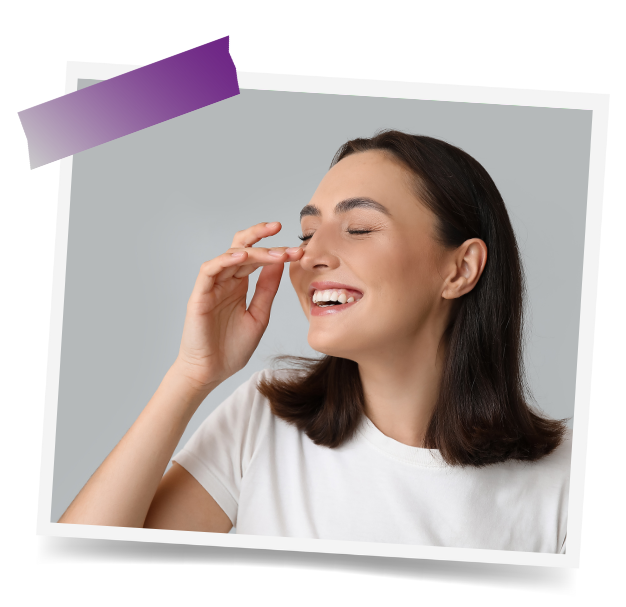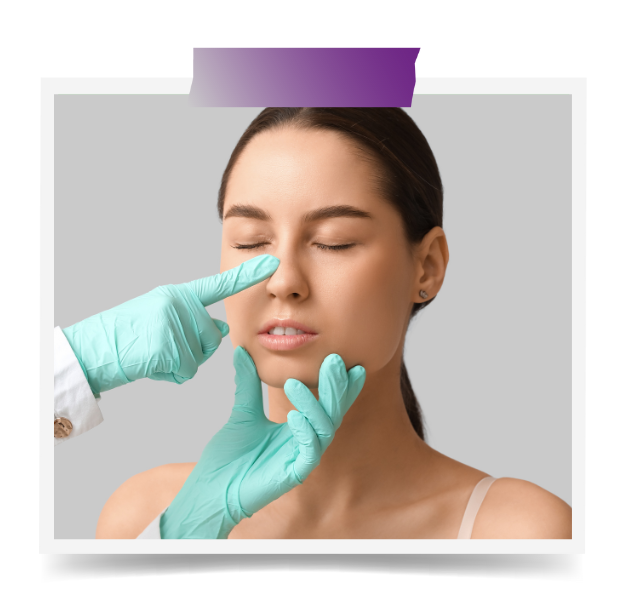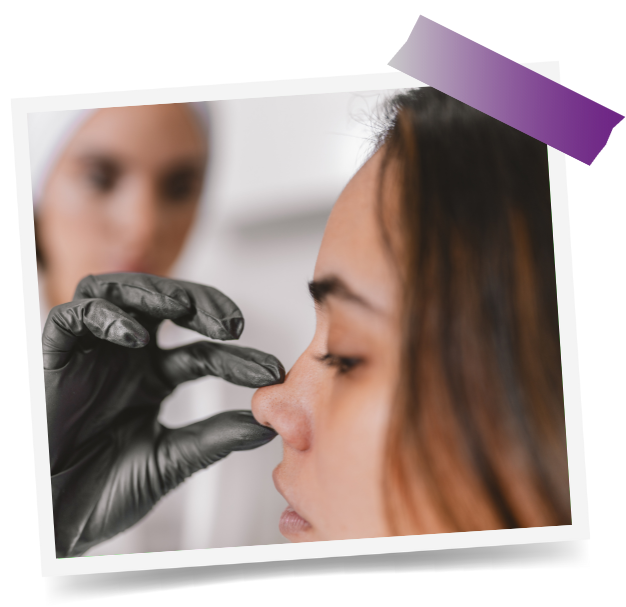Rhinoplasty Tip Reshaping
Rhinoplasty Tip Reshaping
Rhinoplasty tip reshaping is a specialized surgical procedure aimed at refining the tip of the nose to achieve a more balanced and aesthetically pleasing profile. This procedure addresses various concerns, such as a bulbous tip, a drooping nose, or asymmetry, helping individuals achieve the desired look they have envisioned. By focusing on the delicate structures of the nasal tip, skilled surgeons can create a more harmonious relationship between the nose and the rest of the facial features.
The decision to undergo tip reshaping can significantly impact one’s self-esteem and confidence. Many individuals seek this procedure to enhance their overall appearance without altering the fundamental structure of their nose. At Cocoona Clinic, our experienced surgeons utilize advanced techniques to provide natural-looking results that complement your unique facial features, ensuring that your new nose enhances your overall beauty.

Procedure Overview
Rhinoplasty tip reshaping involves several critical steps:
Consultation: The process begins with a detailed consultation where our surgeons will assess your nose and discuss your aesthetic goals. This allows them to tailor the procedure to your specific needs.
Anesthesia: Depending on the complexity of the surgery and patient preference, rhinoplasty can be performed under general anesthesia or local anesthesia with sedation.
Incision Creation: The surgeon will make small incisions either inside the nostrils (closed technique) or on the columella (the tissue between the nostrils, open technique) to access the underlying cartilage and skin.
Tip Reshaping: The surgeon will carefully reshape the cartilage and tissue at the tip of the nose to achieve the desired contour. This may involve removing excess cartilage, grafting tissue, or modifying the angle of the tip.
Incision Closure: Once the desired shape is achieved, the surgeon will close the incisions with sutures and may apply a splint or dressing to support the new structure during the healing process.
Preparation Before Surgery
Adequate preparation is vital for a successful rhinoplasty tip reshaping procedure:
Medical Assessment: A comprehensive medical evaluation will be conducted to determine your suitability for surgery. This includes reviewing your health history and any medications you may be taking.
Medication Guidance: You will be advised to avoid certain medications and supplements that can increase bleeding risks, such as blood thinners, for at least two weeks prior to the surgery.
Lifestyle Changes: Maintaining a healthy lifestyle is essential for optimal healing. Avoid smoking and limit alcohol consumption for several weeks leading up to your procedure.
Fasting Requirements: If general anesthesia is utilized, you will need to fast for several hours before the procedure. Specific instructions will be provided by your surgeon.


What Happens Inside the Surgery Room?
During your rhinoplasty tip reshaping procedure, the following steps will typically take place:
Anesthesia: Anesthesia is administered to ensure your comfort throughout the surgery, with options for general or local anesthesia.
Incision Creation: The surgeon creates precise incisions to access the cartilage and tissue of the nasal tip, allowing for a more controlled reshaping process.
Tip Reshaping: The surgeon skillfully reshapes the nasal tip, making adjustments based on your specific goals. This may involve sculpting the cartilage or repositioning tissue to achieve a more refined appearance.
Incision Closure: After achieving the desired shape, the surgeon will close the incisions using fine sutures. A splint may be placed on the nose to support its new shape during the initial healing period.
Aftercare and Safety Guidelines
Following your rhinoplasty tip reshaping procedure, it is crucial to adhere to the following aftercare guidelines:
Nasal Support: You may need to wear a splint or dressing on your nose to protect the surgical area and support healing.
Pain Management: Mild discomfort and swelling are common after surgery. Your surgeon will prescribe pain relievers to help manage any pain you may experience.
Activity Restrictions: Avoid strenuous activities and heavy lifting for at least two weeks post-surgery to prevent complications and support optimal healing.
Post-Op Care: Follow all post-operative care instructions provided by your surgeon, including how to clean the surgical area and manage any swelling.
Follow-Up Appointments: Regular follow-up visits will be scheduled to monitor your recovery and ensure that your healing process is on track.
Recovery Period
The recovery period for rhinoplasty tip reshaping varies, but here’s what you can generally expect:
First Week: Swelling and bruising around the nose and eyes are common during the initial recovery phase. Many patients can return to light activities within a few days.
Two to Four Weeks: Most swelling will begin to subside, allowing you to see the early results of your surgery. However, it’s important to avoid any strenuous activities during this time.
Full Recovery: Complete healing can take several months, as the final shape of your nose emerges. The nose will continue to refine and settle into its new position over time.
FAQs
The surgery typically takes about 1 to 2 hours, depending on the specific adjustments required.
Scarring is minimal, especially with the closed technique, as incisions are hidden inside the nostrils. Open technique scars are placed strategically for minimal visibility.
Most patients can return to light activities within a week. However, it is advisable to avoid strenuous activities for at least two weeks.
While some initial results may be visible within a few weeks, the final shape of the nose can take up to a year to fully develop as swelling continues to subside.
Yes, all Rhinoplasty Tip Reshaping with Fat Transfer procedures at Cocoona adhere strictly to the Dubai Health Authority (DHA) guidelines. We ensure that every treatment meets DHA’s high standards for safety, quality, and patient care, providing you with the best and safest cosmetic treatment experience.

